If you’re considering a metal roof for your commercial building or home, it’s important to understand the different gauges of metal roofing available. Knowing the gauge and thickness of the metal will help ensure you get the most out of your investment while protecting your property from extreme weather conditions. From pole barns to residential homes, this guide will help you make an informed decision when selecting a metal roofing system. With that in mind, let’s dive into understanding commercial metal roofing gauge – and why it matters.
Disclaimer: This article is intended to provide general information about commercial metal roofing gauge, and should not be taken as a substitute for professional advice. If you are considering a new or replacement metal roof for your home, we recommend that you contact the experienced professionals at Advance Roofing LLC. With years of experience in providing quality roofing solutions to homeowners in Spokane, WA and beyond, they can give you personalized advice on how to choose the right gauge for your needs. At Advance Roofing LLC, they understand that every house is unique and strive to deliver the highest standard of work when it comes to your roof.
Commercial Metal Roofing Gauge — What Is It?
Commercial metal roofing gauge is the measurement of the thickness of the metal used in a roofing system. It’s important to understand the gauge and thickness of your metal roofing because it affects how well your roof holds up against weather conditions. Gauges range from 24 (thickest) to 29 (thinnest). The thicker the gauge, the more durable and better insulated your roof will be against extreme temperatures, rain, hail and wind. Generally speaking, if you’re planning on installing a metal roof for residential use, then you’ll want to go with a thicker gauge for added protection. However, if you’re using metal for a pole barn or other commercial use, you can get away with using a thinner gauge since these buildings usually don’t need as much insulation or protection as residential homes do.
Whether you’re looking for residential or commercial use, metal roofing is a great way to protect your building from the elements. With its wide range of gauges and thicknesses, there’s sure to be an option that fits your needs perfectly. But what types of metal roofing are available? Stay tuned to find out!
Types of Metal Roofing
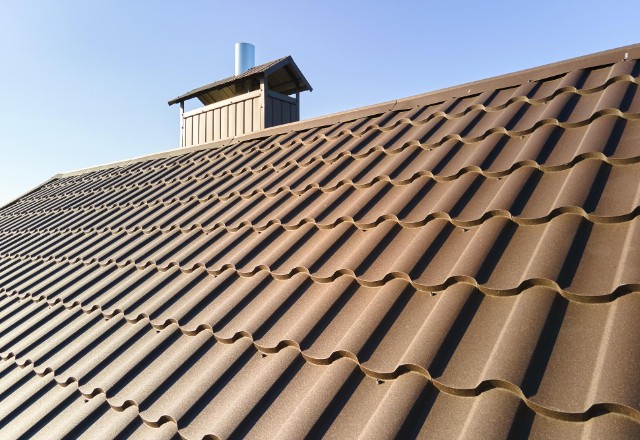
When it comes to metal roofing, there are several types available for both residential and commercial use. The most popular options are corrugated steel panels, standing seam panels, shingles and tile, and aluminum.
- Corrugated steel is the most affordable option and provides a traditional look that can easily be painted or treated with color.
- Standing seam panels provide an attractive look with less maintenance than other metal systems as they don’t need to be painted or sealed.
- Shingles and tiles can be made from copper, zinc, aluminum, or stainless steel and come in various colors and styles that offer a more
- aesthetically pleasing look than corrugated steel.
- Finally, aluminum roofing has the longest life expectancy of all metal roofing types due to its durability and resistance to corrosion.
Whichever type you choose, metal roofing is sure to last for years to come!
Advantages of Metal Roofs
Metal roofing is a great option for both residential and commercial properties. It’s strong, durable, and low-maintenance, so it’s perfect for busy property owners or those who don’t want to spend too much time on upkeep. Metal roofs also offer excellent protection against the elements like rain, snow, heat, and cold. They’re also resistant to fire, rot, mildew, insects, and other pests. Plus, metal roofs last longer than asphalt shingles—they can last up to 50 years!
Gauge and Thickness
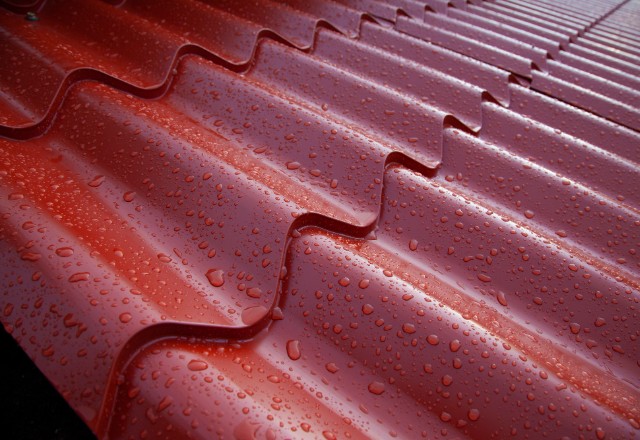
When it comes to metal roofing, one of the most important factors to consider is the gauge and thickness of the material you choose. The gauge is a measurement of how thick or thin the metal is—the higher the number, the thinner the metal. The thickness is measured in millimeters (mm) and indicates how much material is present on your roof.
Generally speaking, thicker materials are more durable and provide better protection against inclement weather. However, they can also be more expensive than their thinner counterparts. On the other hand, if you’re looking for a cost-effective solution, thinner gauges can still offer decent protection while saving you money in the long run. Ultimately, choosing the right gauge and thickness for your metal roof will depend on your budget as well as what kind of protection you need from your metal roof.
When it comes to metal roofing, the gauge and thickness of your material is an important factor to consider. By choosing the right combination for your budget and needs, you can ensure that your metal roof provides adequate protection against the elements. But what is the standard gauge for commercial metal roofs? Stay tuned to find out!
What is the Standard Gauge for Commercial Metal Roofs?
The standard gauge for commercial metal roofs is typically either 24 or 26 gauge. Both of these gauges are considered to be medium, as they offer a balance between cost and durability. At 24 gauge, you can expect your metal roof to last for decades with minimal maintenance, while 26 gauge provides slightly less protection but is more cost-effective.
When selecting the right gauge for your roof, consider factors such as climate, budget, and type of building. If you live in an area with extreme weather conditions or in an area prone to high winds, then a thicker gauge may be necessary. Additionally, if you’re looking for a cost-effective solution then a thinner gauge could work well. Ultimately, the best way to determine which gauge will work best for your commercial metal roof is to speak with an experienced contractor who can provide recommendations based on your specific needs and budget.
Pros and Cons of Thicker vs. Thinner Panels
The debate between thicker and thinner metal roofing panels is an ongoing one. Thicker panels are generally more expensive, but offer increased durability and protection from weather extremes. On the other hand, thinner panels are often cheaper but may not provide as much protection against harsh conditions.
If you live in a location with frequent severe storms or high winds, it may be better to invest in thicker metal roofing panels that can withstand these conditions. Alternatively, if you are looking for something more cost-effective and don’t expect your building to take a beating from the elements, then thinner panels may be a better option. Ultimately, it comes down to balancing your performance requirements and budget constraints to find the right solution for your needs.
Examining 29-Gauge Panels Specifically
When it comes to commercial metal roofing, one of the most popular gauges is 29-gauge. This thickness is a great balance between durability and cost-effectiveness, making it an ideal choice for many situations. While it’s not as strong as thicker panels, 29-gauge panels still provide good protection from inclement weather and can be more affordable.
If your building needs a more robust option, however, then you may want to consider investing in 26 or 24 gauge panels instead. Ultimately, the choice of panel gauge should depend on your specific requirements and budget constraints. It’s important to do your research and consider all options before making a final decision. With careful consideration and planning, you can ensure that your commercial metal roofing investment provides maximum value for money and peace of mind for years to come!
Why Are Heavier Gauges More Expensive?
Heavy gauge metal roofing panels are more expensive than their lighter counterparts because they provide superior protection against inclement weather and other damages. Heavier gauges also require more materials, labor, and time to install correctly. Additionally, heavier gauge panels are made of higher quality metals that are built to last longer than lighter weight options. Furthermore, heavier gauges provide better insulation for your building, which can help you save money on energy bills in the long run. All of these factors add up to create a higher cost for heavier gauge metal roofing panels. So while investing in a heavier gauge may seem like a bigger upfront expense, it will likely pay off in the end with increased durability and efficiency.
Applications for Commercial Buildings
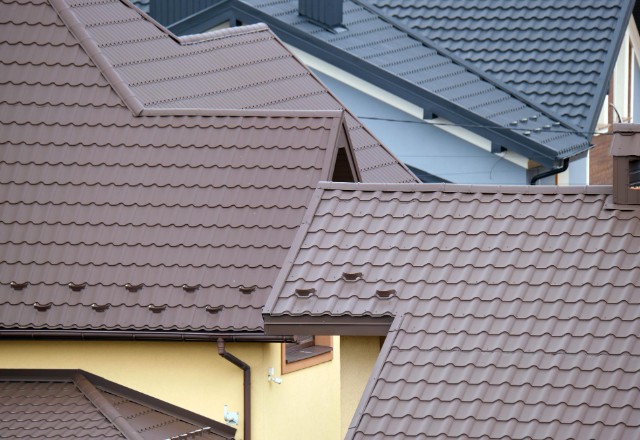
When it comes to commercial buildings, heavier gauge metal roofing panels are the go-to choice. These panels provide superior protection against inclement weather and other damages, making them ideal for businesses looking for reliable roofing solutions. Heavier gauge metal roofing is also great for commercial buildings that require insulation since it can help reduce energy costs over time. Additionally, heavy gauge metal roofing is extremely durable and long lasting, making it an excellent investment for any business. With all these benefits in mind, it’s no wonder why so many commercial buildings opt for heavy gauge metal roofing panels!
Heavy gauge metal roofing is the perfect choice for commercial buildings looking for reliable, long-lasting protection. For larger structures such as pole barns and other large buildings, even tougher solutions may be necessary…
Pole Barns and Other Large Structures
For larger structures such as pole barns and other large buildings, heavier gauge metal roofing is essential for optimal protection. The extra weight of the metal can help prevent damage from heavy snow or strong winds, as well as provide insulation for extreme temperatures. Additionally, heavier gauge metal roofing panels are incredibly durable and will last much longer than lighter gauge materials. They are also more resistant to corrosion, making them an ideal choice for areas prone to salt spray or humidity. If you’re looking for a reliable roofing solution that offers superior protection, then heavier gauge metal roofing is an excellent choice for your pole barn or large building!
Commercial Buildings with Flat or Low-Sloping Roofs
Commercial buildings with flat or low-sloping roofs require metal roofing that is specifically designed to handle the weight of the structure, as well as provide superior protection from severe weather conditions. For these types of structures, lighter gauge metal roofing panels are typically used. Lighter gauge metal roofing offers an economical solution for commercial buildings since it is less expensive than heavier gauge materials, but still provides great durability and protection. Additionally, lighter gauge metals are easier to install and can be customized in terms of color, texture, and design to meet the needs of your specific project. If you’re looking for a reliable and affordable option for your commercial building’s roofing needs, then lightweight metal roofing may be just what you need!
Durable Option for Harsh Weather Conditions
When it comes to choosing a roofing material that is durable and able to withstand harsh weather conditions, metal roofing is a great option. Metal roofing panels are made from strong, lightweight materials such as aluminum or steel, which makes them both strong and lightweight at the same time. They are also designed with special coatings that protect them against UV rays from the sun and moisture from rain or snow. In addition, metal roofs can be customized with different colors and textures to create an aesthetically pleasing look for your commercial building. With its durability, strength and style, metal roofing is a great choice for any commercial building in areas with harsh climates.
Using Sheathing to Add Additional Protection
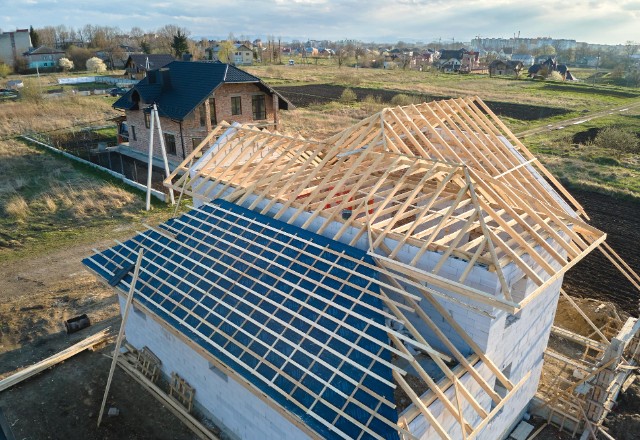
Sheathing is an important step when it comes to installing a new metal roof. Sheathing is a layer of material, usually plywood or oriented strand board (OSB), that adds additional protection and stability to your roof. It helps to protect your metal roof from extreme weather conditions such as heavy snow and rain, while also providing extra support to help prevent the panels from buckling or warping over time. Sheathing also provides insulation benefits, helping to keep the temperature inside your building more consistent year-round. Properly installed sheathing can help extend the life of your metal roof, so make sure you hire an experienced professional for the job.
Industry Standards for Different Environments
Industry standards for the different environments vary from place to place and type of roofing material used. For instance, metal roofing gauge is usually specified by the local building codes and should be followed in order to ensure safety. Generally, a minimum of
26-gauge steel is used for residential applications while commercial buildings typically require a heavier gauge like 24-gauge steel. Additionally, some areas may have specific requirements depending on their weather conditions such as coastal areas where stainless steel or aluminum are required due to their superior corrosion resistance. Furthermore, some localities may also have additional guidelines such as fire ratings that must be taken into consideration when selecting the right metal roofing system for your needs. It’s important to always check with your local building authority before beginning any project involving metal roofing systems.
Residential Building Applications
For residential applications, metal roofing gauge is typically specified by the local building codes. A minimum of 26-gauge steel is generally used for residential buildings and this helps to ensure a safe and secure structure. Additionally, it’s important to consider the area’s weather conditions when selecting the right metal roofing system as some areas may require stainless steel or aluminum due to their superior corrosion resistance. Furthermore, depending on fire ratings, additional guidelines may be necessary for your specific area. When it comes to residential metal roofing systems, always check with your local building authority before beginning any project to make sure you are up to code and can enjoy a safe and reliable roofing system for years to come.
Metal roofing is a great choice for both residential and commercial applications. It provides a durable, reliable, and long-term solution that can last a lifetime. With the right materials and proper installation, metal roofs can prove to be an excellent investment that will pay off in the long run. Now that you know about the benefits of metal roofing for residential applications, stay tuned to learn more about how it can improve your home’s value with its unique look and style!
Homes with Metal Roofs
Metal roofs are low maintenance, providing homeowners with peace of mind that they won’t have to worry about replacing or repairing their roof any time soon. Not only do metal roofs last longer than traditional shingles, but they also provide superior protection from the elements, such as hail and heavy winds. Furthermore, metal roofing can help reduce energy bills by reflecting sunlight away from the home in the summer months and trapping heat inside during winter months. With all these benefits, it’s no wonder why more homeowners are choosing to go with metal roofing for their homes!
Why a Thinner Panel May Be Better Suited
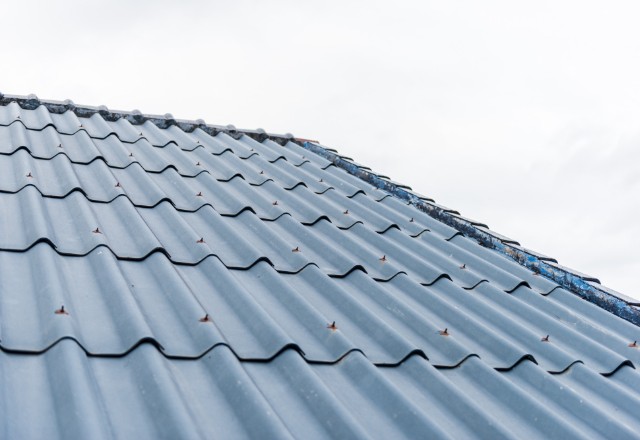
When it comes to selecting the right metal roofing gauge for your home, there are a few factors to consider. A thinner gauge may be better suited in some cases. For example, if you live in an area that gets high levels of snowfall, then a thinner panel may be beneficial as it will help reduce the weight on your roof and prevent any structural damage caused by heavy accumulations of snow. Additionally, thin panels require less material, which means they’re cheaper to install and maintain. Finally, thin panels can also provide better insulation than thicker panels because they are able to trap air more effectively.
Ultimately, when it comes to selecting the best metal roofing gauge for your needs, it’s important to consider all available options and take into account factors such as where you live and what type of weather conditions you experience in order to get the most out of your investment. Thinner panels may provide an ideal solution for those who want both cost-effectiveness and protection from extreme weather conditions!
Cost Benefits of a Residential Metal Roofing Project
Investing in a metal roofing project for your home is an excellent way to protect it from the elements while also providing numerous cost benefits. Metal roofs are incredibly durable and can last up to 50 years with little to no maintenance, making them an extremely cost-effective long-term solution. Additionally, metal roofs have been proven to increase energy efficiency due to their reflective capabilities. This can help reduce your cooling costs during hot summer months by reflecting the sun’s rays away from your house. Finally, metal roofing materials come in a variety of colors ariety of colors, textures and styles that allow you to customize the look of your home without having to invest much additional money into the project. All in all, investing in a residential metal roofing project can provide numerous benefits both financially and aesthetically!



 509-201-4190
509-201-4190
